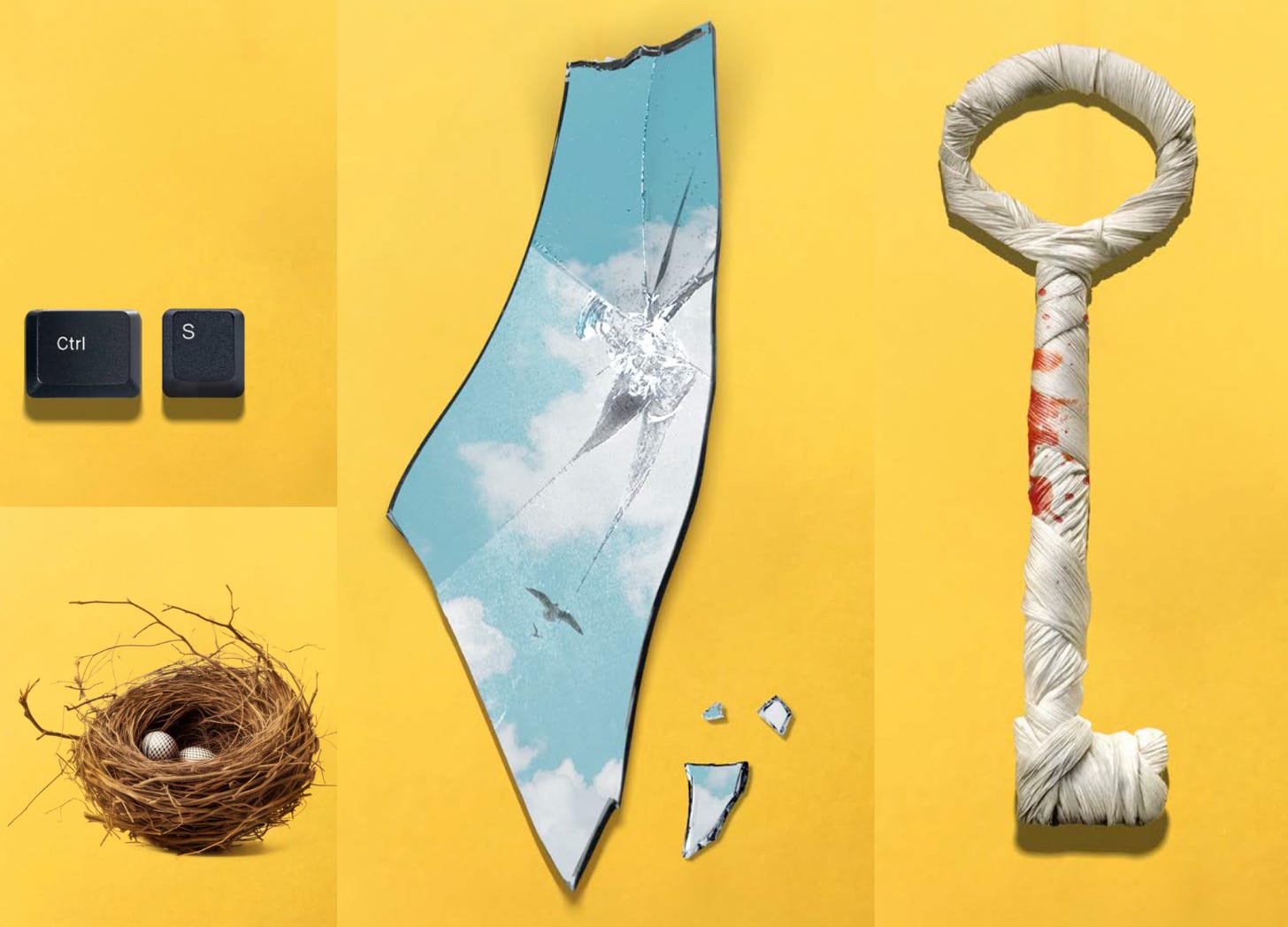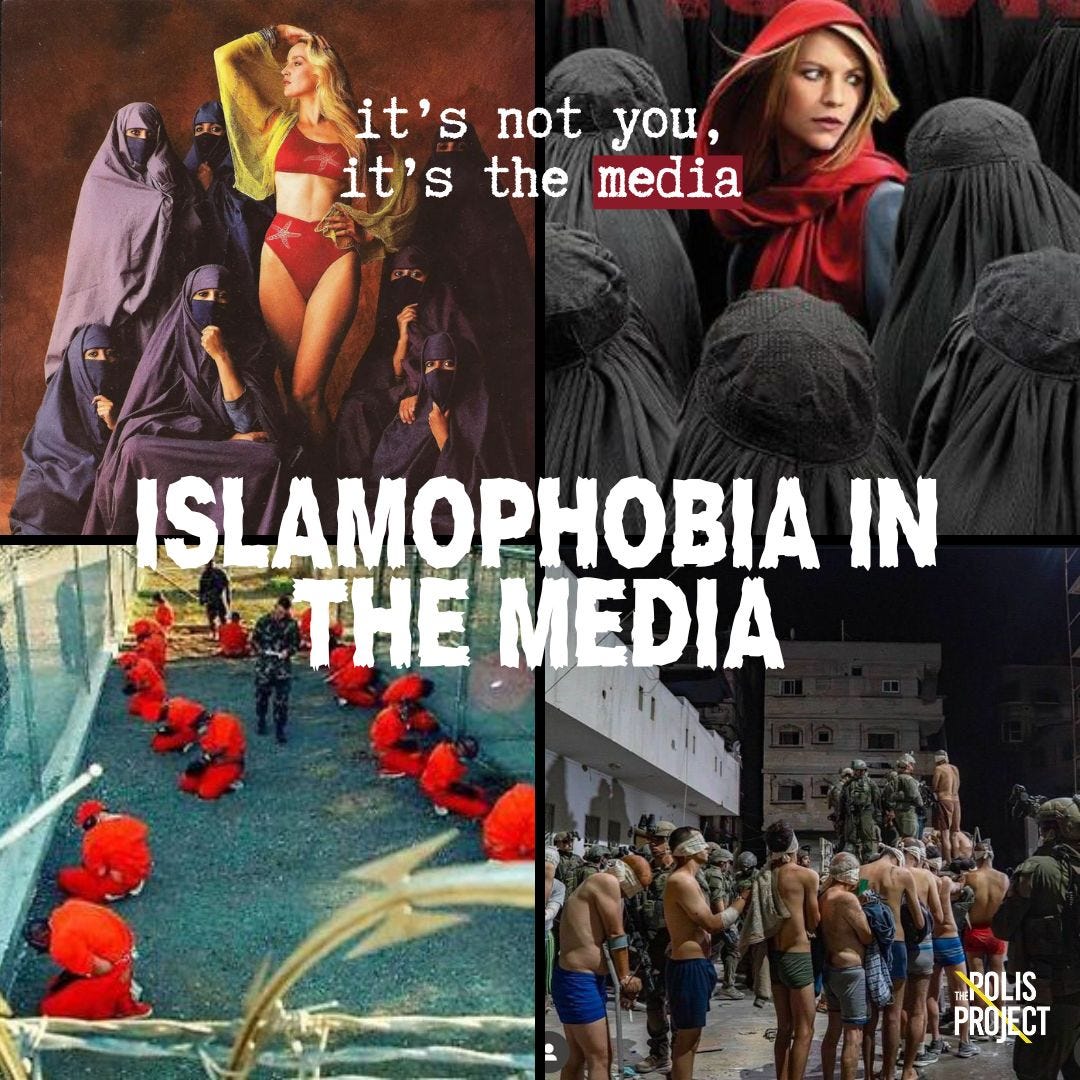On Palestinian Futures...
Two powerful books are a testament to the tenacity and will to live in a liberated Palestine even under threat of erasure. Our double club meets tomorrow and Read Palestine week begins.
It is the second year of Read Palestine week and I found myself in tears as I went over the books we’re planning to discuss on Sunday. Isabella Hammad’s Recognizing the Stranger: On Palestine and Narrative and the Arablit magazine’s chapbook And Still We Write gift us with memories of Palestinian futures even as Palestinians remain in the chokehold of a cruel past and contend with their own erasure today, and for the last 14 months. These two powerful works are a testament to the strength, tenacity, and will to live in a free and liberated Palestine even as genocide unfolds. For us, the bystanders, these books only sink us into a pit of helpless and guilty despair.
And Still We Write comes to us directly from Gaza and the title says it all. Still they write, still they resist, still they persist, and still they imagine a future for Gaza and for themselves. Maryam Al Khateeb writes that when she tried to answer how she might imagine Gaza in the future, it felt as if “this question has come from the scream of a child in a deep pit.” She writes with an aching love for her city trying to now contend with the “departure of the place” itself and finds herself repulsed by notions of belonging. In his haunting poem, Basman Eldirawi writes that the future of Gaza “lies in a coma” and is continually shattered by explosions. For Mahmoud Alshaer contemplating the future feels as if he is “acknowledging an amputation” as he is plunged into a world of silence, pain and resurfacing memories. These reflections are placed alongside passages on “Where I Write Now” and in which the writers insist that they need to write to survive. They keep on writing despite their abject surroundings and the looming violence literally overhead.
The most resounding reflection on the future comes from the beyond of death. Samer Abu Hawash’s poem “We Will Lose This War” delivers a list of images of gore and killing but ends with the following:
They will never understand how they annihilated us
then annihilated us,
then annihilated us,
and yet could not erase from their mirrors
our shining image
nor could they erase from our faces
that hazy, oblivious light,
that pure, radiant smile.
A cruel but a triumphant end where the nobility and courage of Palestinians lights the path to the future. It is not only the words that will break you in this achingly beautiful chapbook but also the images delivered like shards to the heart. There is key that doubles as a corpse wrapped in the bloodied white sheet, a map of Gaza mirroring the blue sky but its shattered, a bird’s nest with eggs imprinted with the pattern of keffiyehs, and the repeated image of a computer keyboard’s “ctrl” and “s” buttons that signify saving and in this case, the salvaging of words and memories.
Our second book club focus is Isabella Hammad’s essay Recognizing the Stranger which was composed as a speech delivered in September 2023 and uses literary criticism to reflect on the “shifting narrative shape of the Palestinian struggle in the global context.” Leaning on Edward Said’s ideas, many of which are grounded in literary criticism, Hammad teases out the precise moments of“recognition” in literature when a character goes from ignorance to knowledge. Whether it is Oedipus finding out that he’s married to his own mother and had killed his own father or if its Darth Vader telling Luke Skywalker that he’s is Luke’s father, the feeling is that “everything we thought we knew has been turned on its head. Yet it all makes sense because we have had the clues all along, we have suspected it as the story unfolded.
Hammad writes that in literature as well as in real life, such scenes of awakening and recognition are familiar to Palestinians. This is the moment “when an Israeli realizes, in a turning point of action, that a Palestinian is a human being, just him or her.” The simplicity of this idea is what is most shocking; the notion that Palestinians have been denied their humanity for a hundred years now. Hammad builds on this thesis with numerous examples. She refers to the Ghassan Kanafani novella Returning to Haifa in which a Palestinian couple return to their occupied home twenty years later in search of their child who was lost during the Nakba. They find that he was adopted by Jewish couple and has not only grown up as an Israeli but is a soldier in the enemy army, a devastating moment of recognition for this young man. Hammad also refers to a story of recognition told to her by an Israeli soldier who came face to face with a Palestinian man who held up his child’s photograph. Instead of being able to shoot the man, the soldier ran and eventually defected from the army.
Hammad quotes BDS activist Omar Barghouti who demands to know “how many Palestinians have to die for one soldier to have their epiphany?” She is right to observe that the struggle for Palestinian liberation has gone on for so unbearably long that “it is easy to feel disillusioned with the scene of recognition as a site of radical change or indeed as a turning point at all.” The problem is that the effort to generate a truthful and ethical narrative about Palestine is twisted, corrupted and corroded by governments, institutions and the media. Hammad explains: “Individual moments of recognition are repeatedly overwhelmed by the energy of a political establishment that tells the onlooker: this is not what it looks like. It is too complicated to understand. Look away.” It is precisely this form of gaslighting that become a method to diminish Palestine, Palestinians as well as Palestinian politics, history and culture.
The essay concludes on a ruminative note by asking the reader to move away from fixed identity, to decenter oneself and be willing to shape-shift “when the light of an other appears on the horizon in the project of human freedom, which remains undone.” Unfortunately, the beautiful conclusion undoes itself since Hammad had to write an afterword to her essay as a genocidal violence multiplied in Gaza. Everything has been shattered yet again but Hammad allows for the future to come into view. She quotes Mahmoud Darwish who wrote back in 1971 that “they will harden Gaza each time they bomb her” but that “they can never complete the process, because they cannot kill us all.” She ends with Al-Jazeera journalist Wael Dahdouh who right after his family members were killed said that Palestinians will “return and rebuild, and live again in our homes.”
The unrelenting onslaught on Gaza has left us no space for mourning since mourning can only happen after the fact. As we watch this “genocidal war on our phones,” Hammad writes, “to remain human at this juncture is to remain in agony.” But she insists that we must remain there, in agony, since this is the “most honest place from which to speak.”
Only a couple of days ago, pediatric intensive care physician, Dr. Tanya Haj-Hassan, offered her agonized testimony at the United Nations. She said that a precedent has been set in Gaza where gross violations of international law and barbaric acts of violence have been met with impotence by individuals, institutions and countries. This poses a threat to global stability, she warned. For those of us who have grasped this from the first day, we realize 14 months later that our collective humanity is in question.
In a haze of anguished tears, Dr. Haj-Hassan asks: “What are we risking?” Too little. Simply too little. Hardly anything on most days. We must pay heed to poet Rasha Abdulhadi’s words included in the chapbook: “Wherever you are, whatever sand you can throw on the gears of genocide, do it now.”
Love and solidarity ❤️🔥
Bhakti Shringarpure
Announcements and Updates
→ The Radical Books Collective’s double book club meets tomorrow on Sunday December 1st at 6pm Gaza, 5pm Paris and 11am New York time zones. We will welcome the Arablit magazine editor Marcia Lynx Qualey to tells us about how the chapbook And Still We Write came together. We will then open up the conversation to everyone to talk about the chapbook and Isabella Hammad’s book. Please register here to receive the zoom link even up to one hour before the book club begins.
→ New episode of the podcast It’s Not You, It’s the Media is now available. We offer a detailed breakdown of Islamophobia, dissecting its historical roots, modern manifestations, and the critical role the media plays in perpetuating anti-Muslim sentiment. Listen here and watch here.
→ Read Palestine Week has officially started. Participate in the events, take action, refuse complicity in Israeli literary institutions, practice BDS, and get in the gears of genocide. Radical publishers have made FREE ebooks by Palestinian writers, about Palestinian history, and about organizing for a free Palestine available for this week. All the information is on the Publishers for Palestine website. Read, Resist, Rise up!
www.radicalbookscollective.com
Twitter, Facebook & Instagram @warscapes





